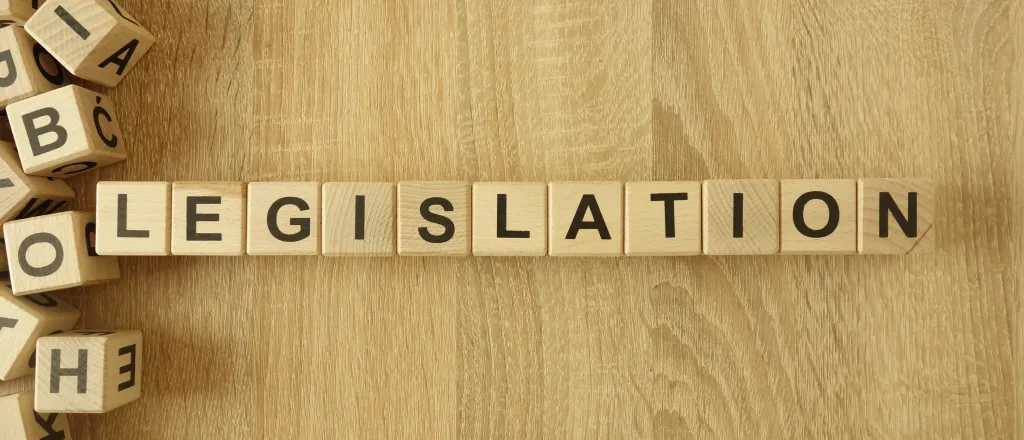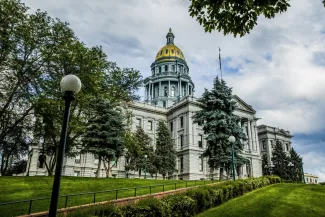
Dozens of new state laws poised to take effect in Colorado
(Colorado Newsline) A large set of the new laws approved by the Colorado Legislature earlier this year will go into effect this week.
August 7 marks the end of the 90-day period following the adjournment of the Legislature when Colorado voters can petition to have certain bills placed on the ballot as a statewide ballot issue. If a bill isn’t petitioned during that period, it goes into Colorado statute. Some bills have additional provisions that specify different times when certain aspects of a law will go into effect.
Several dozen new laws go into effect Wednesday. Some of the most notable are detailed below. A full list of laws going into effect can be found in the state’s 2024 digest of bills.

© fotoguy22 - iStock - 1468912821
Transparency in event ticket sales: House Bill 24-1378 requires ticket sellers to guarantee refunds should an event be canceled. It also requires sellers to disclose the total cost of a ticket up front and prohibits an event organizer from denying entry to someone who bought a ticket from a reseller.
The bipartisan bill was sponsored by Democratic Representative William Lindstedt of Broomfield, Democratic Representative Alex Valdez of Denver, Democratic Senator Tom Sullivan of Centennial and Republican Senator Bob Gardner of Colorado Springs.
“Unfortunately, most Coloradans have had negative experiences with the ticket industry that make it more difficult for them to attend concerts and professional sports games,” Valdez said in a statement. “As a resident of downtown Denver, I know how important our local sports teams and big concert events are to local businesses. Our legislation will bolster protections for consumers, making ticket-buying a more secure process so Coloradans can feel better about their purchases.”
Local property tax rebates: Senate Bill 24-2 allows county governments to establish property tax incentives to address local concerns related to land, such as workforce housing, child care or behavioral health. The law will allow local governments to provide rebates or tax credits to property owners who convert rental units from short-term to long-term, for example. Rebates can be renewed if analysis shows they have been effective in addressing local concerns.
The bipartisan bill was sponsored by Democratic House Speaker Julie McCluskie of Dillon, Republican Representative Lisa Frizell of Castle Rock and Democratic Senator Dylan Roberts of Frisco.
Removing barriers to jobs: House Bill 24-1004 will make it easier for people with nonviolent criminal records to meet state credential and licensing requirements for certain professions. The law creates a uniform process that prohibits automatic denial of an applicant due to a criminal record and requires state regulators to consider each individual applicant’s criminal record and present circumstances.
The bill was sponsored by Democratic Representative Jennifer Bacon of Denver, Democratic Representative Shannon Bird of Westminster and Democratic Senator James Coleman of Denver.
Towing regulations: House Bill 24-1051 requires property owners to explicitly authorize non-consent tows and prohibits towing companies from patrolling properties to enforce parking restrictions. It also requires companies to return wrongfully towed vehicles to their original location within 48 hours at no cost to the vehicle owner, among other provisions intended to protect consumers.
The bill was sponsored by Democratic Representative Andrew Boesenecker of Fort Collins, Democratic Representative Tisha Mauro of Pueblo, Democratic Senator Julie Gonzales of Denver and Democratic Senator Kevin Priola of Henderson.
Gig driver protections: Senate Bill 24-75 requires ride share companies like Uber and Lyft to disclose fare, distance and direction information to a driver before they accept a ride. They must also disclose total fares to riders before they confirm a ride, as well as how much of the money goes to the driver. The companies must also inform drivers about specific grounds for suspension and termination.
The bill was sponsored by Bacon, Democratic Representative Naquetta Ricks of Aurora, Democratic Senator Robert Rodriguez of Denver and Priola.
Death benefits for spouses of state employees: House Bill 24-1139 ensures that spouses of state employees classified as high-risk continue to receive workers’ compensation death benefits should their spouse be killed on the job, even if they remarry. Previously, a spouse would lose the death benefit if they remarried.
The bipartisan bill was sponsored by Democratic Representative Sheila Lieder of Littleton, Republican Representative Ryan Armagost of Berthoud, Republican Senator Perry Will of New Castle, and Democratic Senator Tony Exum of Colorado Springs.
Wearable technology purchased by consumers today increasingly has the ability to read thoughts. The next frontier in this field is influencing people’s thoughts and behavior. Our first in the nation law protects Coloradans’ from these invasions of privacy while continuing to encourage technological advancements.
– State Representative Cathy Kipp
Biological data privacy: House Bill 24-1058 is a first-in-the-nation law that expands the Colorado Privacy Act to include biological data and neural data within the definition of “sensitive data.” Companies must disclose how they use sensitive data. Entities that use biological data for identification purposes will need explicit consent from consumers to use it.
The bipartisan bill was sponsored by Democratic Representative Cathy Kipp of Fort Collins, Republican Representative Matt Soper of Delta, Republican Senator Mark Baisley of Sedalia and Priola.
“Big technology companies are making remarkable progress with technology that uses biological and neural data, but without proper privacy protections in our state law, this data can be used and sold without consent,” Kipp said in a statement. “Wearable technology purchased by consumers today increasingly has the ability to read thoughts. The next frontier in this field is influencing people’s thoughts and behavior. Our first in the nation law protects Coloradans’ from these invasions of privacy while continuing to encourage technological advancements.”
County coroner qualifications: House Bill 24-1100 requires that coroners elected after Nov. 5 in counties with a population greater than 150,000 be either a death investigator or forensic pathologist certified and in good standing with the respective boards.
The bill was sponsored by Democratic Representative Stephanie Vigil of Colorado Springs and Democratic Senator Sonya Jaquez Lewis of Longmont.
Concealed carry training: Certain sections of House Bill 24-1174 will go into effect Wednesday while other portions won’t go into effect until July 1, 2025. The bill sets stricter requirements for training to obtain a concealed carry permit in the state. The training class needs to have eight hours of instruction, including a live fire portion and written exam. The bill also imposes a refresher class requirement for permit renewals.
The bill was sponsored by Democratic Representative Monica Duran of Wheat Ridge, Democratic Representative Marc Snyder of Manitou Springs and Democratic Senator Kyle Mullica of Thornton.
Colorado Newsline is part of States Newsroom, a nonprofit news network supported by grants and a coalition of donors as a 501c(3) public charity. Colorado Newsline maintains editorial independence. Contact Editor Quentin Young for questions: info@coloradonewsline.com. Follow Colorado Newsline on Facebook and X.















